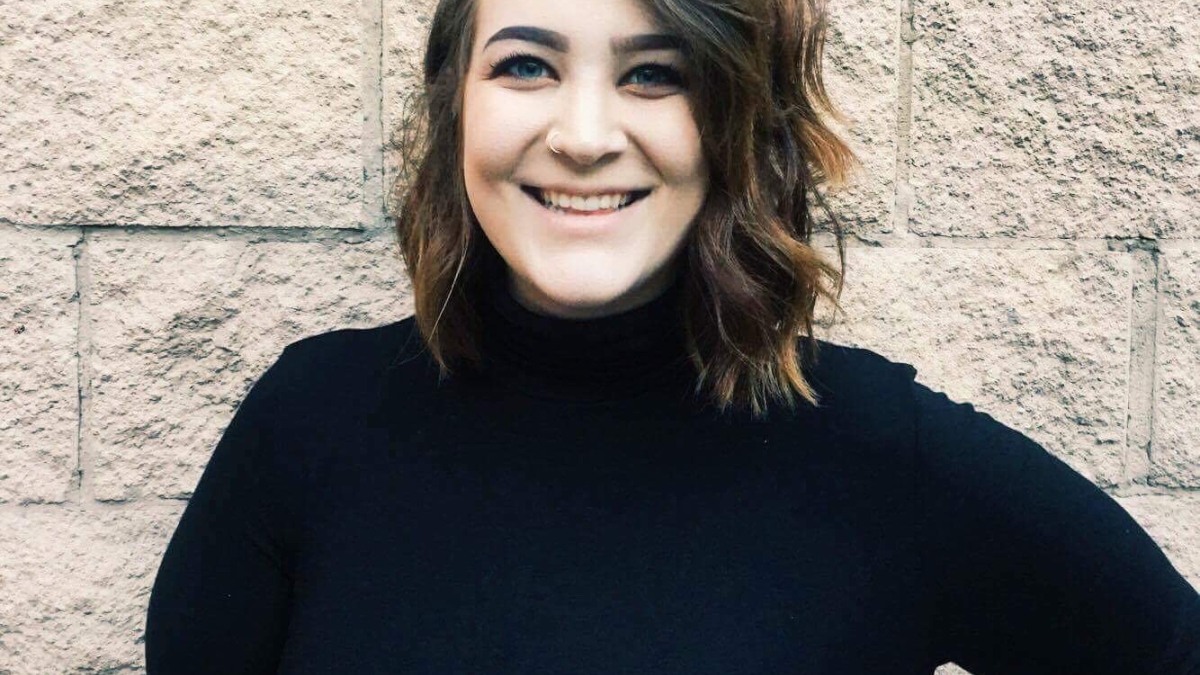ASU student leaves her mark in history and graduates early

Bachelor of Arts in history graduate Sarah Harris.
Editor’s note: This is part of a series of profiles for fall 2017 commencement. See more graduates here.
Sarah Harris grew up in Ahwatukee, Arizona, in the shadow of beautiful South Mountain and has always had a passion for history and an interest in religion. So her decision to study both seemed to be the perfect solution.
“As a child, I excelled in math and science. I came to ASU in middle school for a math decathlon competition but always loved history,” Harris said. “I was raised Jewish, and I went to Temple Emanuel in Tempe, which sparked my curiosity in religion.”
Harris will be graduating with her Bachelor of Arts in history from the School of Historical, Philosophical and Religious Studies with a minor in religious studies. She will be graduating with honors (and a semester early).
Her involvement within the school has allowed her to experience many of the opportunities SHPRS has to offer. During her last semester she particpated in an Undergraduate Research Experience led by Matthew Delmont, professor of history and director of SHPRS. She worked as a research assistant on Delmont’s book project, "To Live Half American: African Americans at Home and Abroad During World War II" and also completed an internship before joining the project.
“As a historian, it will be my job to truthfully explain and extrapolate on historical moments and themes, and if I misrepresent the history or falsify conclusions, I can misrepresent history and cause harm to our world,” said Harris.
Harris answered a few questions about her ASU education.
Q: Why did you chose to study religion and history?
A: I chose to study history because I felt it was an overlooked subject that ties everything in our world together. When you study history you can understand the past, present, and the future. I wanted to understand why our world was the way it was, and study the causes of the problems that our world faces today. Oftentimes people overlook the differences and the histories of different places, which causes conflict, and I wanted to understand this so I could make a change in our world.
I chose to also study religion because it goes hand in hand with history. Major historical moments are often tied to religion, and studying the differences of religion helped me to understand the differences between cultures and societies and why they interacted with one another in certain ways. Religion is the base of most cultures, whether or not they admit to it, and I felt this was a crucial part of my understanding of history.
Q: What's the most valuable thing you've learned at ASU?
A: I would argue that the most valuable thing I have learned at ASU is how to successfully communicate and research. I am not arguing that I will write something that will one day change how we understand history, but I believe that every historically researched text does change the way we view history. My professors have taught me how to successfully evaluate sources, formulate thoughts and opinions, and research concepts and ideas that can help make me a successful writer and historian.
Q: What's been your biggest accomplishment at ASU?
A: So far, my biggest physical accomplishment has been my capstone paper. I had an outstanding professor that allowed me to write my research essay on a topic that I felt passionate about, and the outcome was outstanding. I have written numerous essays at ASU that I have felt proud of, but this one in particular allowed me the freedom to write entirely about what interested me, and challenged me to write a research paper on my own.
Q: What's the best piece of advice you can give to those still in school?
A: I would say that the most important concept to understand is that you need to find something that you are passionate about. There are many subjects that I am passionate about, but it took me many years, courses, and meetings with professors to figure out what that is. History is a field where you can specialize in very specific history or historical moments, so find your "thing" and stick with it. Also, history is a subject where connections are very important, so attend conferences or talk to your professors about what you are interested in, because they know the field better than you do, so listen to their advice and what they have to say. Finding a friend is also helpful. I met my best friend at freshman orientation, we realized we had the same historical interests, and we took some of our history courses together. Having someone to talk through history texts and concepts wiith is immeasurably helpful.
Q: What are your plans after graduation?
A: Since I'm graduating early, I will spend the spring semester traveling. In fall of 2018, I plan to go to graduate school to study peace, justice, and conflict resolution, so I can study equality in America. After this, I hope to gain a position where I can do research to impact the lives of Americans, especially African Americans, and create change. Depending on where I am in two years, I might apply for a PhD program.
More Arts, humanities and education

ASU professor's project helps students learn complex topics
One of Arizona State University’s top professors is using her signature research project to improve how college students learn…

Award-winning playwright shares her scriptwriting process with ASU students
Actions speak louder than words. That’s why award-winning playwright Y York is workshopping her latest play, "Becoming…

Exceeding great expectations in downtown Mesa
Anyone visiting downtown Mesa over the past couple of years has a lot to rave about: The bevy of restaurants, unique local shops…

